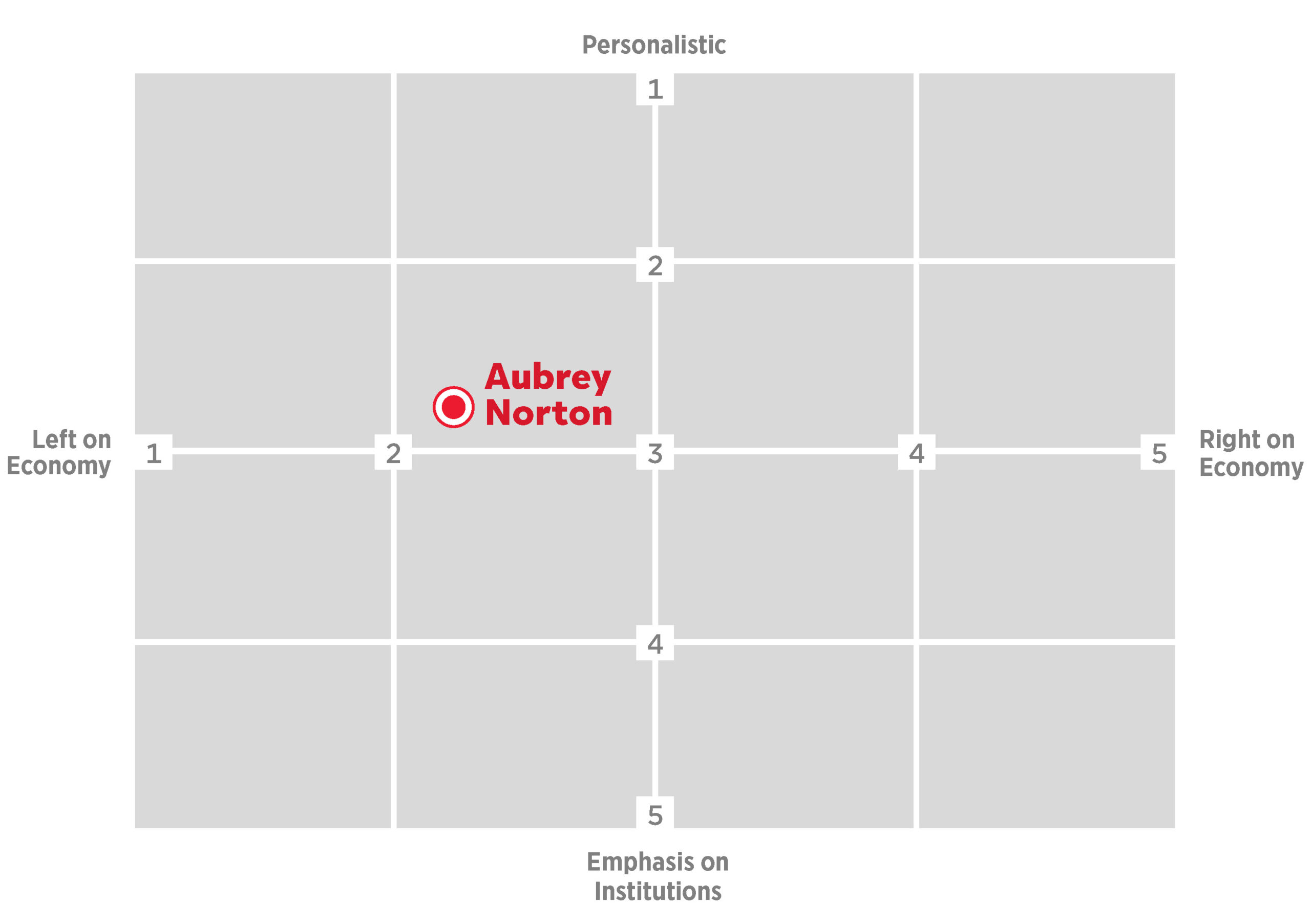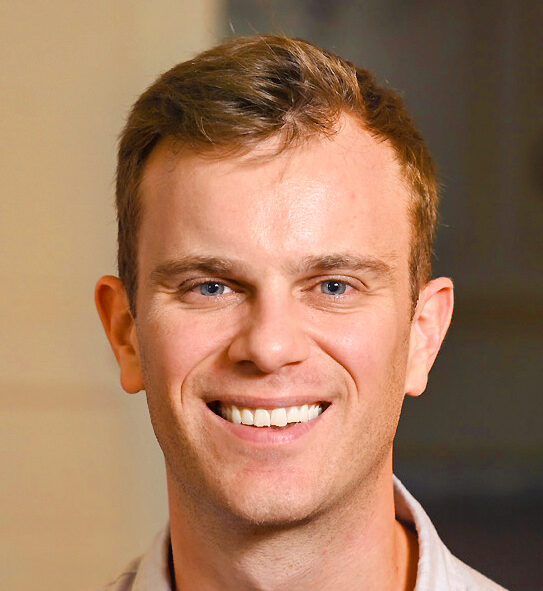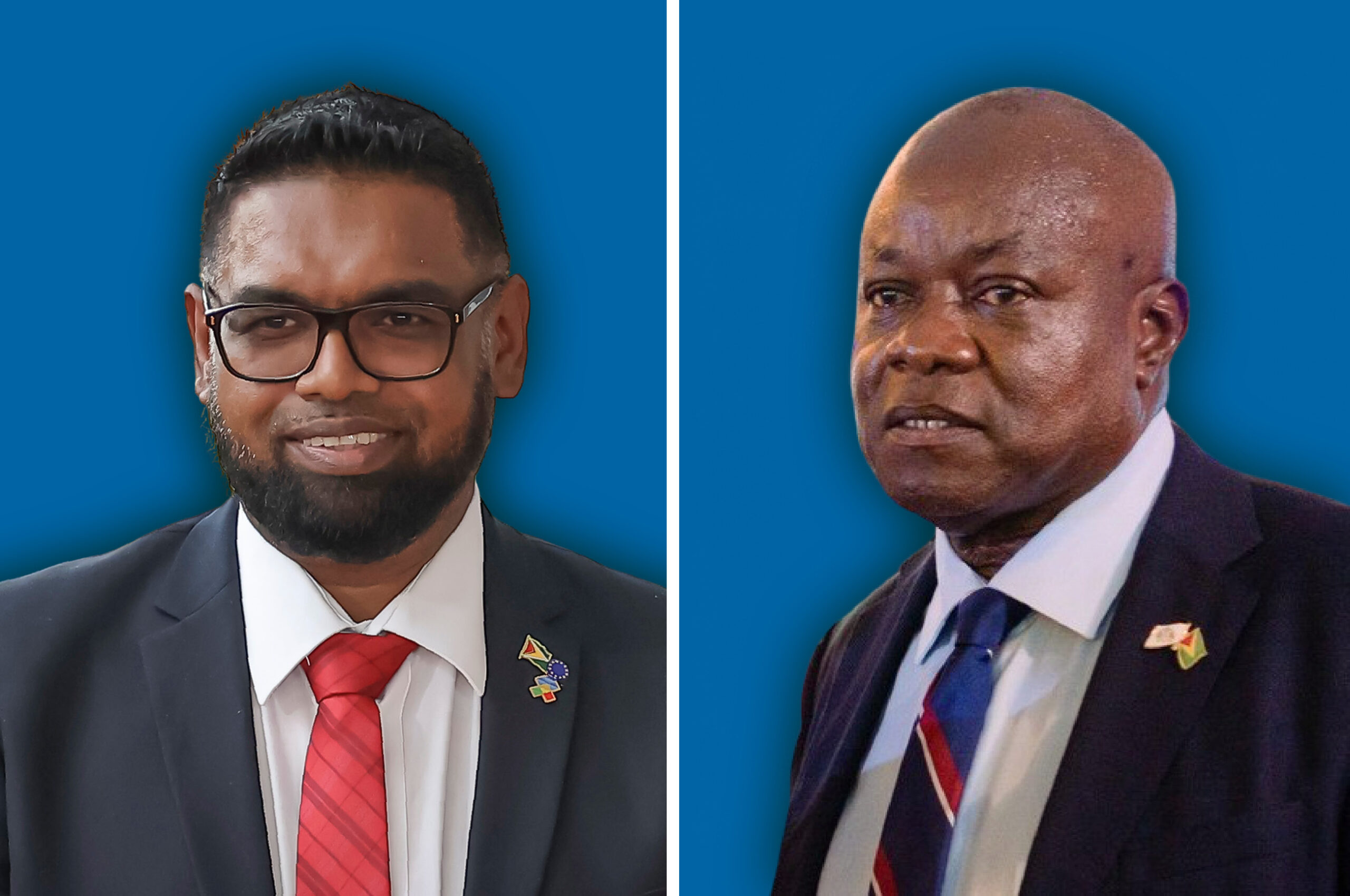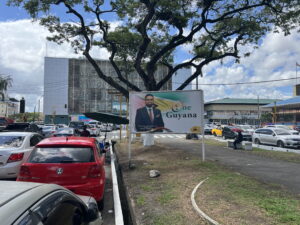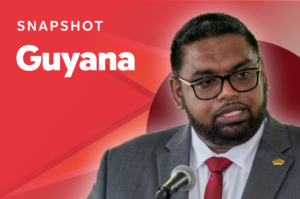This page was updated on September 2.
In the September 1 general elections, Guyanese citizens voted for president, vice president, and all 65 seats in the National Assembly. Official results are pending.
At stake is oversight of the country’s oil boom, which continues to gain momentum. U.S. firms Exxon and Chevron and Chinese conglomerate CNOOC increased Guyana’s total installed capacity to about 900,000 barrels per day in early August, a sizable boost from close to 650,000 barrels of oil a day at the beginning of the year. The country is projected to expand its oil production output to 1.3 million barrels per day by 2027. Guyana’s gross domestic product grew 43.6% in 2024, and the IMF projects a 10.3% expansion in 2025.
The population of around 800,000 is weighing the best choice to ensure the gains are appropriately distributed. Guyana has been making impressive progress in education, but the poverty rate remains high and health outcomes still lag behind regional and peer-country averages, according to the World Bank. In the background looms Venezuela’s threat to seize control of the disputed Essequibo territory, which is roughly the size of Florida and comprises over half of Guyana’s landmass.
With just a one-seat majority in the legislature, President Irfaan Ali is seeking a second five-year term in office. His party, the PPP/C, is facing not only the traditional opposition coalition, but also an unusually strong third-party challenge from a controversial outsider, Azruddin Mohamed, a wealthy businessman sanctioned by the U.S. for alleged tax evasion on gold exports.
AQ asked five nonpartisan experts to help us identify where each candidate stands on two spectrums: left versus right on economic matters, and personalistic versus institutionalist on leadership style. We’ve published the averages of their responses, with a caveat: Platforms evolve, and so do candidates. We will occasionally update this page to reflect developments in the campaigns.
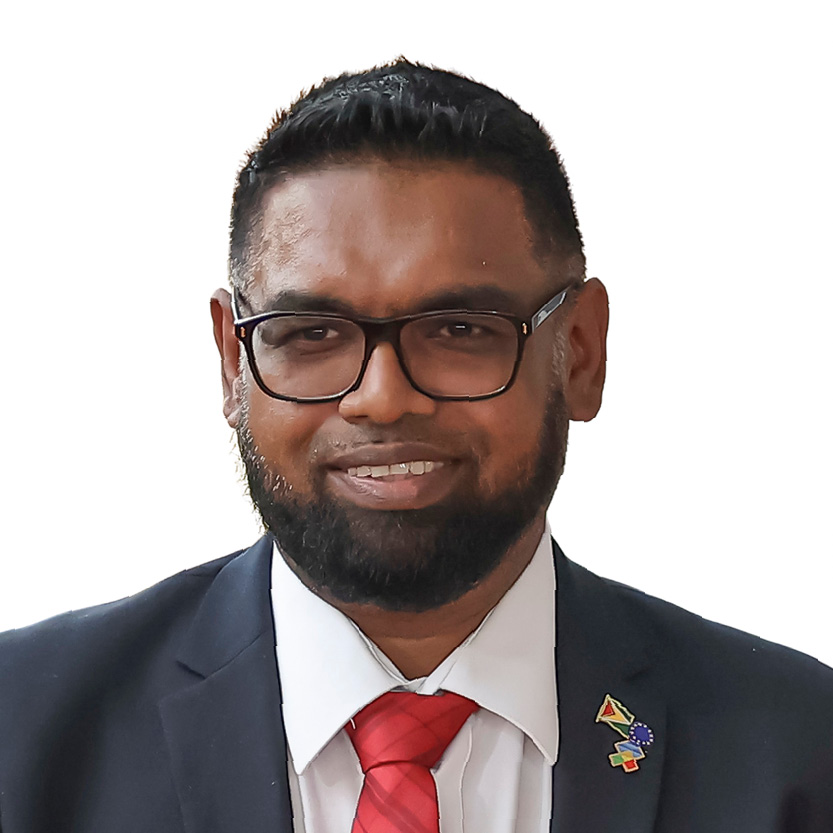
Irfaan Ali
45, president
People’s Progressive Party/Civic (PPP/C)
“What we’ve achieved over the last five years is truly remarkable.”
HOW HE GOT HERE
Ali has a doctorate in urban planning and before becoming a politician worked in the Finance Ministry and the State Planning Secretariat. He joined the legislature with the PPP/C in 2006, and became Housing and Water Minister in 2009 under former President Bharrat Jagdeo (1999-2011), who is Ali’s vice president. Ali won the 2020 elections narrowly after a dramatic vote-tabulation dispute overturned initial results that showed Ali losing due to apparent fraud, and a recount swung the election to him.
WHY HE MIGHT WIN
Ali has expanded social services and cash transfer programs, made university education free, and built new schools and hospitals. Jagdeo, still widely considered the most influential politician in the country, is campaigning for their joint reelection. State media have a strong presence in Guyana and tend to support ruling party views, an issue the EU cited in its report on the 2020 election.
WHY HE MIGHT LOSE
Elections in Guyana are traditionally close two-way races, and while Ali appears to have an advantage, the lack of recent census data complicates predictions. Moreover, Azruddin Mohamed’s third-party bid may shake up the race and siphon votes from the PPP/C. Some high-profile infrastructure projects are facing delays and cost overruns, including the Demerara River Bridge, and some voters associate Ali and these problems with persistent corruption as reported by Transparency International.
WHO SUPPORTS HIM
Ali is at the head of the PPP/C, which has traditionally maintained a loyal base of most Indo-Guyanese voters. The last published census, from 2012, lists Indo-Guyanese at 39.8% of the population, Afro-Guyanese at 29.2%, mixed Guyanese at 19.9%, and Amerindians at 10.5%. (2022 census results have been long delayed). Many oil workers and business owners profiting from the country’s rapid development also support Ali, as do many of the various communities that have received new roads, schools and medical centers.
WHAT HE WOULD DO
On the campaign trail Ali talks of reducing taxes on income as well as key consumer goods, including boat engines and All-Terrain Vehicles. He has also promised easier access to credit, more reliable electricity, and continued progress on education and health care. He also seeks to make banking, especially online banking, more accessible, and would continue to raise public sector wages to combat Guyana’s brain drain.
IDEOLOGY
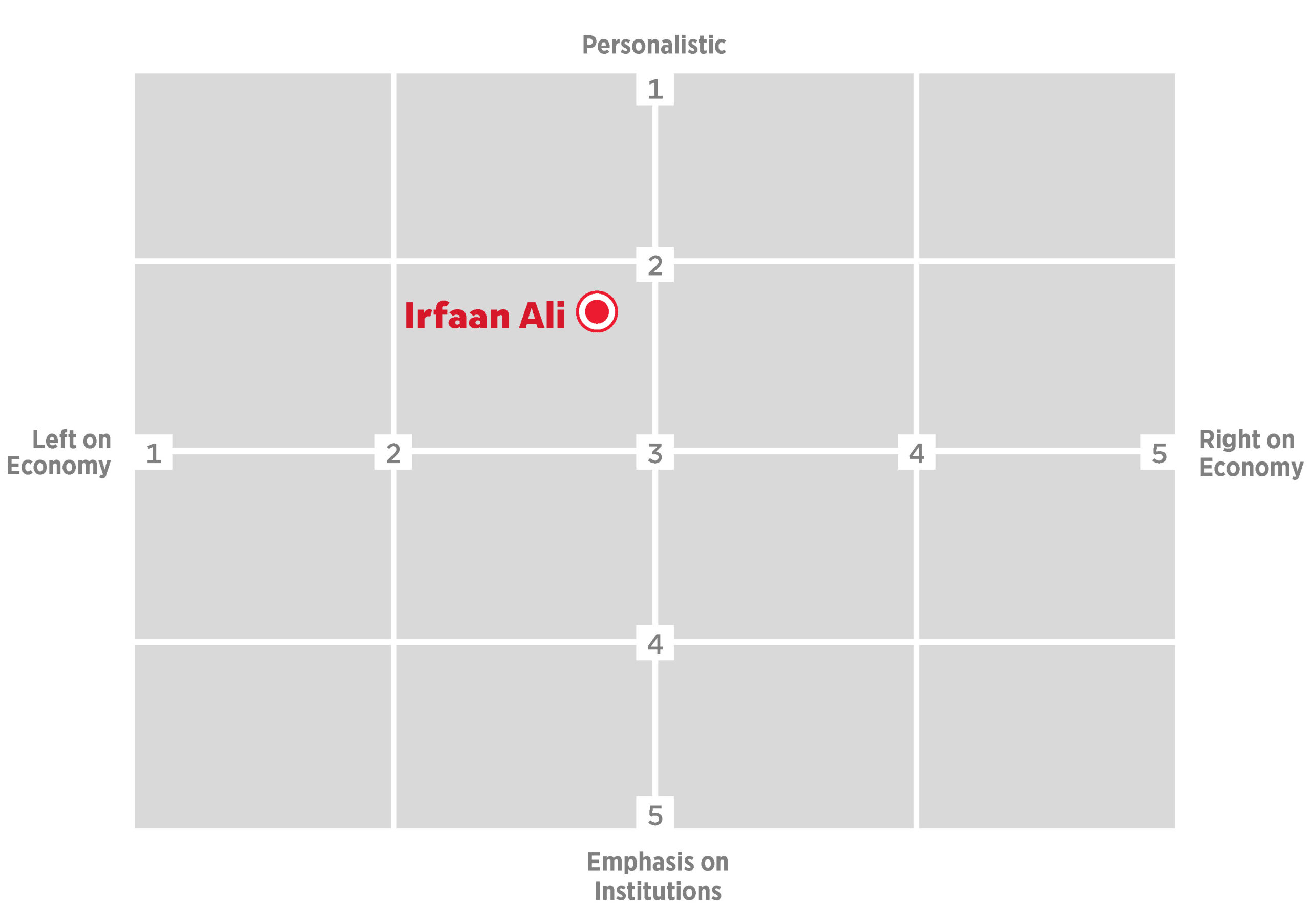
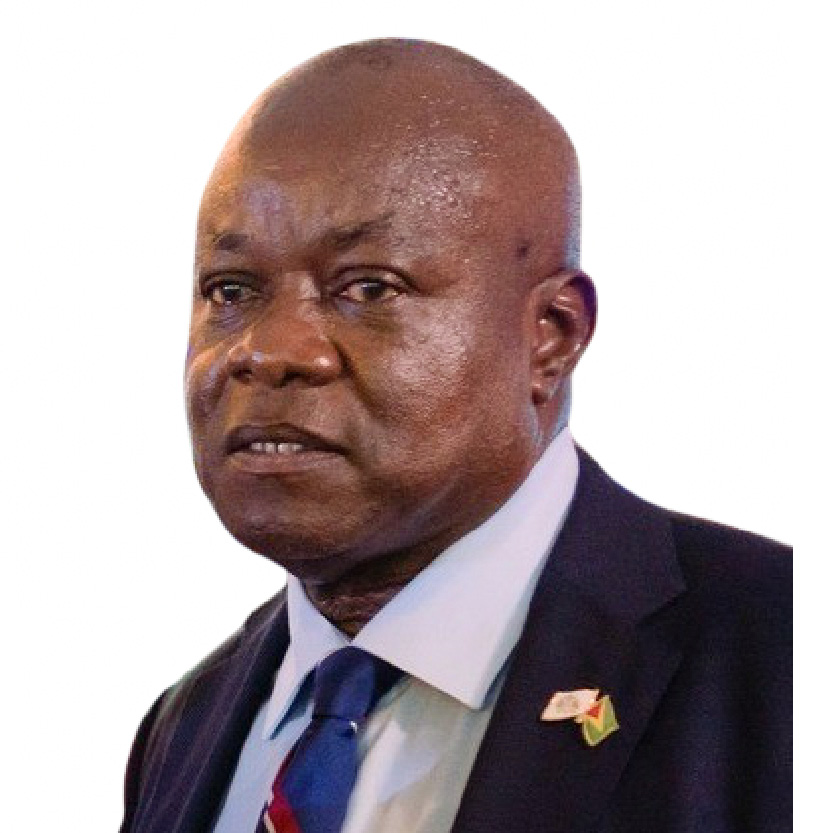
Aubrey Norton
68, legislator and opposition leader
A Partnership for National Unity (APNU) coalition
“We will struggle to ensure that our people benefit from the resources of this country… It is our money and, therefore, it should be our honey.”
HOW HE GOT HERE
Norton has a long trajectory in politics after receiving degrees in Guyana, Cuba and the UK. He served in the legislature from 1998-2006 and at the foreign ministry, and was Head of Migration in the office of President David Granger. From 2015 to 2018 he served as Presidential Adviser on Youth Empowerment, and in 2021, he was elected head of the People’s National Congress Reform (PNCR) party, which is part of the opposition coalition that holds 31 of 65 seats in the National Assembly. Norton rejoined the National Assembly and was elected leader of the opposition in 2022.
WHY HE MIGHT WIN
In December 2021, Norton won the PNCR leadership by a landslide, showing his strong standing within the opposition. He is pushing for renegotiation of oil contracts to be more favorable to Guyana, which may attract some voters, and focuses his messaging on improving education. If Azruddin Mohamed and his third-party bid split the Indo-Guyanese vote, Norton would benefit.
WHY HE MIGHT LOSE
As a longtime politician, Norton’s appeal to younger voters may be too limited for him to gain traction with that demographic. Meanwhile, it’s unclear whether his selection of running mate Ganesh Mahipaul and his outreach to the Indo-Guyanese community, which has long favored the PPP/C, may bear fruit. The opposition also has limited means to counter the ruling party’s influence in state media.
WHO SUPPORTS HIM
The traditional base of the Afro-Guyanese opposition appears aligned behind Norton. Voters of all backgrounds who associate both the ruling PPP/C and Mohamed with corruption and the slow delivery of promised infrastructure and social programs may also view Norton as the best choice.
WHAT HE WOULD DO
Like all candidates, Norton has said he’d increase cash transfer programs, raise public sector wages, and focus on transparency. He would prioritize assertive renegotiation of the oil contracts that determine government revenue to boost Guyana’s cut. Norton speaks often of improving higher education through greater investment, and supports free online degree programs. His party platform also calls for greater student stipends, rent subsidies, a rent-to-own housing program for low-income workers, and raising the maximum tax-free earnings level from around $620 to around $1,910.
IDEOLOGY
